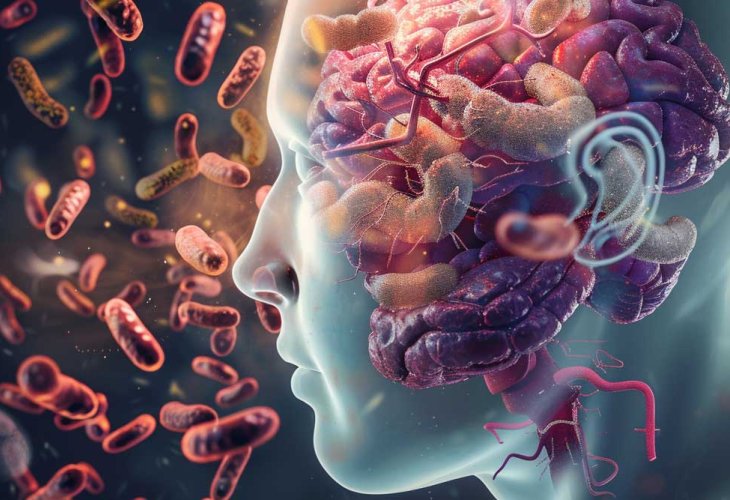Health and Nutrition
How Gut Bacteria Influence Your Mood, Anxiety, and Mental Health
Discover the science behind the gut-brain connection, how diet affects your emotions, and what foods and probiotics can improve mental well-being

Have you ever wondered what directly affects your mood? In the past, researchers believed that mood was influenced primarily by brain activity and chemical imbalances in the brain. Today, thanks to groundbreaking research, we know that a "gut feeling" is more than just a figure of speech.
Studies reveal a powerful connection between gut bacteria — the tiny organisms living in our digestive system, and our mental health.
The Gut-Mood Connection: More Than You Think
Surprisingly, gut bacteria have been shown to influence emotions, anxiety levels, depression, and even behavior. In recent years, scientists have discovered a fascinating relationship between the gut microbiome, the digestive system, mood, and the brain. This link, known as the “microbiota-gut-brain axis,” is opening new doors for understanding mental health and developing more holistic treatments for psychological conditions.

What Is the Microbiota?
The microbiota is a massive community of trillions of microorganisms — primarily bacteria, that live in our intestines. These bacteria are not harmful; in fact, they play a crucial role in:
Nutrient absorption
Strengthening the immune system
Protecting against harmful bacteria
Producing neurotransmitters — brain chemicals that influence mood

Gut bacteria "communicate" with the brain in several ways:
The vagus nerve — the longest nerve in the body, connects the brain and gut. Gut bacteria influence vagus nerve activity, thereby impacting mood, stress response, and anxiety levels.
Certain gut bacteria produce neurotransmitters like serotonin and dopamine, which affect feelings of pleasure, motivation, and sleep.
An imbalanced gut microbiome is often linked to chronic inflammation, which can negatively affect mood and brain function.
The more harmful bacteria you have in your gut, the more likely it is that symptoms like sadness, depression, or anxiety may be partly rooted in your gut health. The good news? You can do something about it.

What Do the Studies Say?
A growing body of research confirms the gut-brain connection:
A 2019 study published in Translational Psychiatry found that people with depression had a significantly different gut microbiome compared to healthy individuals.
A 2023 study in Cell showed that probiotic treatment (supplements containing “good” bacteria) improved mood and reduced anxiety symptoms in individuals with generalized anxiety disorder.
What Does This Mean for Us?
These findings suggest promising new approaches to mental health treatment. In the future, it's possible that targeting gut bacteria through probiotics or personalized nutrition could play a major role in managing mood disorders and enhancing emotional well-being.
According to researchers, diet plays a critical role in shaping the gut microbiome and, in turn, affects our mood. Here’s what you should know:
Diets high in sugar and saturated fat damage beneficial gut bacteria and encourage the growth of harmful strains.
Artificial sweeteners may also harm the good bacteria.
Antibiotics, while often necessary, wipe out both good and bad bacteria in the gut.
Helpful for Gut Bacteria:
Fiber-rich foods like fruits, vegetables, whole grains, and legumes promote the growth of beneficial bacteria.
Fermented foods like yogurt, sauerkraut, and kefir help diversify the microbiome.
Probiotic supplements can also be beneficial, but since products vary widely in bacterial content and composition, it’s best to consult with a healthcare professional before use.

